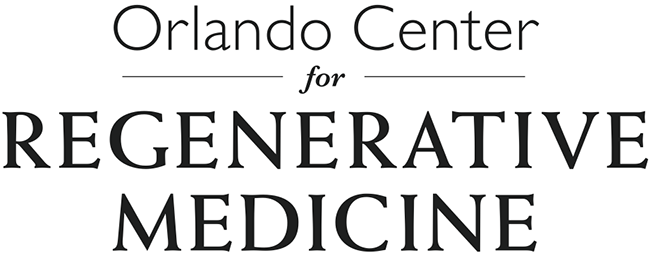
Platelet Rich Plasma for Shoulder Impingement, Bursitis, Tendinitis
Orlando, Florida – Shoulder impingement syndrome is a collection of shoulder symptoms related to impingement, bursitis, and tendinitis in and around the shoulder joint. The most common symptom of shoulder impingement is pain, especially when one tries to use the affected arm above the level of the head (e.g., overhead activity, throwing). There may be pain over the deltoid muscle or the outside of the upper arm as well.1 Since shoulder impingement syndrome includes inflammation of the bursa, rotator cuff, biceps tendon, and labrum, the physical examination findings are extensive. Physicians often find evidence of shoulder bursitis and tendinitis along with generalized pain and inflammation. X-rays, ultrasound, or MRI may be used to confirm the diagnosis or rule out other possible causes of shoulder pain.

Shoulder impingement syndrome symptoms include: pain with overhead use of the arm and weakness in the shoulder.
Shoulder impingement syndrome is quite common in serving or throwing athletes, such as tennis players, volleyball players, and baseball pitchers. In fact, shoulder impingement, bursitis, and tendinitis are extremely common among major-league baseball pitchers. One of the most common reasons for a trip to the disabled list for pitchers in that sport is related to problems with shoulder tendons and joints. Take one MLB team for example, the Baltimore Orioles. Pitchers Zach Britton, Mike Wright, Chris Tillman, Wade Miley made trips to the DL for shoulder bursitis and tendinitis (not to mention catcher Wellington Castillo and third baseman Ryan Flaherty.) In fact, Chris Tillman recently underwent platelet rich plasma therapy as part of his shoulder rehab. Spread across the rest of MLB, professional tennis, and other pro sports, the number of athletes affected by shoulder impingement syndrome is remarkable.
Treatment for acute shoulder impingement (i.e., severe symptoms occurring over short period of time) is rest, ice, and NSAIDs. After several days, physical therapy may be added to treatment. Steroid injections may occasionally be used to reduce tendinitis and bursitis inflammation. People with shoulder impingement may require orthopedic surgery if there are obvious structural problems in the shoulder joint such as a full thickness rotator cuff tear.1,2
An exciting new approach to the treatment of shoulder impingement syndrome with associated bursitis and/or tendinitis is platelet rich plasma therapy. “Platelet rich plasma therapy or PRP is an individualized treatment in which we use the patient’s own blood as the source of an injectable treatment,” reports Dr. Jason Pirozzolo, a sports medicine physician in Orlando, Florida and President of the American Regenerative Medicine Society. “We draw a small quantity of blood from a vein and then isolate and concentrate various natural healing factors in the plasma portion of the blood sample. The PRP sample contains blood platelets, cytokines, growth factors, and other molecules that facilitate and speed up healing.”
Platelet rich plasma therapy has been increasingly used to treat shoulder impingement syndrome. Some clinical studies have shown PRP injection to be effective at reducing pain and disability in people with shoulder impingement syndrome.4
Shoulder impingement syndrome with accompanying bursitis and tendinitis is a painful disorder that can interfere with sports and daily activities. “Professional athletes, weekend warriors, and patients of all ages are increasingly using PRP as part of their rehab and treatment for shoulder impingement,” states Pirozzolo.
Authored by © The American Regenerative Medicine Society.
Dr. Jason Pirozzolo is the Director of Sports Medicine and Trauma at Orlando Hand Surgery Associates and Orlando Center for Regenerative Medicine. He specializes in non-surgical orthopedic treatments, regenerative medicine and platelet rich plasma injections. He is also the President of The American Regenerative Medicine Society and serves on the Board of Governors at the Florida Medical Association and as a delegate to the American Medical Association.
To schedule a regenerative medicine consultation with Dr. George White, Dr. Jason Pirozzolo, Dr. Brian White, or Dr. Anup Patel, call (407) 841-0001. Our center is conveniently located in the same building as our Orlando Hand Surgery Associates Downtown Orlando office at 801 N. Orange Ave., Suite 530, Orlando, FL 32801.
References
- Meister K. Internal impingement in the shoulder of the overhand athlete: pathophysiology, diagnosis, and treatment. Am J Orthop (Belle Mead NJ). Jun 2000;29(6):433-438.
- Mehta S, Gimbel JA, Soslowsky LJ. Etiologic and pathogenetic factors for rotator cuff tendinopathy. Clin Sports Med. Oct 2003;22(4):791-812.
- Andia I, Abate M. Platelet-rich plasma: underlying biology and clinical correlates. Regen Med. Sep 2013;8(5):645-658. doi:10.2217/rme.13.59
- Nejati P, Ghahremaninia A, Naderi F, Gharibzadeh S, Mazaherinezhad A. Treatment of Subacromial Impingement Syndrome: Platelet-Rich Plasma or Exercise Therapy? A Randomized Controlled Trial. Orthop J Sports Med. May 2017;5(5):2325967117702366. doi:10.1177/2325967117702366


